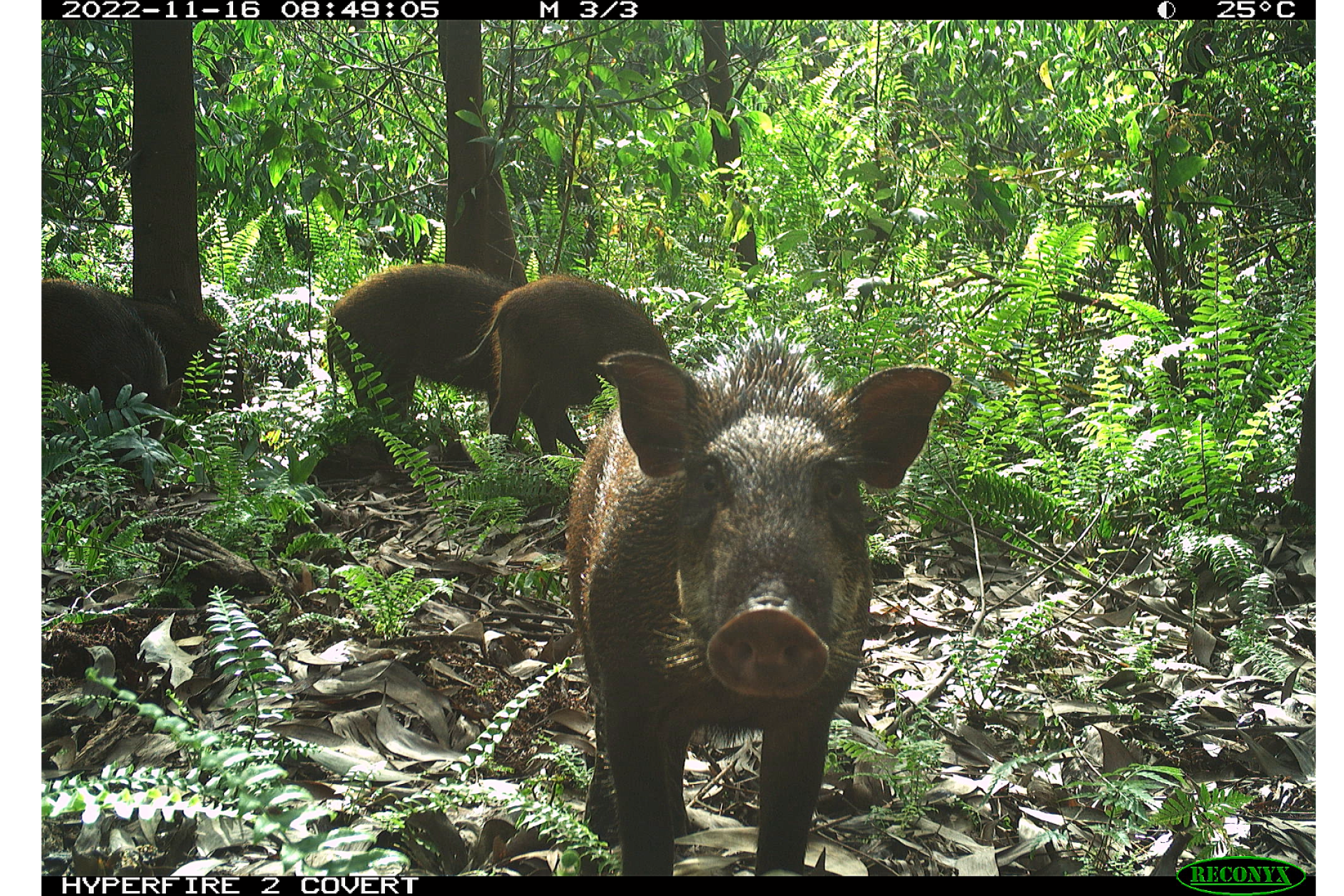
Enhancing surveillance of African Swine Fever in Indonesia through advanced wild animal monitoring
African Swine Fever (ASF) is a fatal disease affecting domestic and wild pigs, and is impacting the pork industry, forest livelihoods and ecosystem balance across Eurasia and Africa. The disease is now established in Indonesia, which is home to six of Asia’s 11 wild pig species, including five endemics. From limited information available, we know the disease spread rapidly across Borneo and resulted in a near 100% fatality rate. The virus has now reached other islands where surveillance, monitoring and control remains weak.
ASF spreads between wild and domestic pigs. The World Organisation for Animal Health called for rapid improvements to wild pig monitoring across Asia so that epidemiologically-relevant population numbers can be estimated, and more robust ASF surveillance and control measures put in place. Pigs are seldom monitored specifically, but are frequently sampled as ‘bycatch’ in camera-trap surveys. This project will improve pig monitoring and disease surveillance using this ‘bycatch’ data, which can be easily scaled-up through ongoing monitoring to help Indonesia and other Asian countries track and control ASF.
The postgraduate researcher will analyse existing longitudinal camera-trap data from across Indonesia to quantify the population dynamics of pigs prior to and following the arrival of ASF. They will explore several statistical models to estimate pig population size from occupancy data, and then use this information to design bespoke camera surveys for pigs. They will have opportunity to trial this new design in Java, coupled with remote sensing data from drone or satellites, to target the endemic Javan warty pig and wild boar. Together with questionnaire surveys of key stakeholders, the project will lead to improved population estimates of pig species and ASF impact across the country.
The project is part of a new collaboration between Kent, the IUCN Wild Pig Specialist Group and other conservation partners, embedded within a broader programme of biodiversity monitoring and ecological studies across Indonesia. The PhD results therefore have strong potential to influence environmental practices on the ground.
The successful candidate will have ecological fieldwork experience, strong analytical skills (including GIS), and be familiar with wildlife monitoring methods in challenging tropical environments.
The minimum academic requirement is 2:1 Bachelor’s degree or equivalent, in biology/ecology, conservation, wildlife management or related disciplines.
To express your interest in this project you must submit a Kent ARIES Expression of Interest Form and a copy of their Curriculum Vitae (CV) to kentgrc@kent.ac.uk by 23:59 GMT on 8th January 2025.
Step 1. Download a copy of the Kent ARIES Expression of Interest Form here.
Step 2. Submit your completed form and a copy of your CV (no more than 2 pages) to kentgrc@kent.ac.uk.